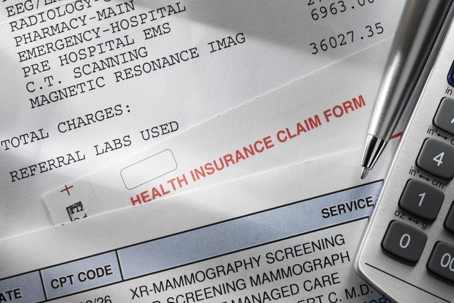An accident can turn your life upside down in an instant. Beyond the pain and trauma, you may find yourself facing a mountain of medical bills—the ambulance ride, emergency room visits, surgeries, physical therapy, and follow-up appointments add up quickly. One of the first questions many people have is, “Who will pay for all of this?”
The good news is that several sources can cover your medical expenses after an accident, but the process can be complicated. Whether you rely on your health insurance, auto insurance, or the at-fault party’s insurance, it’s essential to understand how each option works and how legal assistance can help ensure you aren’t left shouldering the financial burden on your own.
Potential Sources for Medical Bill Payment
1. Your Health Insurance
Your health insurance is often your first line of defense when covering medical costs after an accident. Most insurance plans will cover your treatment up to your policy limits regardless of who's at fault.
How It Works:
- You’ll typically need to pay your deductible and any applicable copays out of pocket.
- If your health insurance covers the cost upfront, they may later seek reimbursement from the at-fault party’s insurance through a process called subrogation.
Important Consideration:
Using your health insurance can ease immediate financial stress, but it doesn’t usually cover additional accident-related costs like lost wages or pain and suffering.
2. Your Auto Insurance
Your personal auto insurance policy may also help cover medical expenses, depending on your coverage type.
Personal Injury Protection (PIP)
If your policy includes PIP coverage—required in certain states—it can pay for your medical bills and even lost wages, regardless of who was at fault.
Medical Payments Coverage (MedPay)
MedPay, available as an add-on in some states, specifically covers medical expenses up to a set limit, regardless of fault. MedPay is particularly useful for covering costs that health insurance or liability coverage might not address.
3. The At-Fault Party’s Insurance
If someone else caused the accident, their liability insurance could pay for your medical expenses. However, getting compensation from the at-fault driver’s insurance company isn’t always straightforward.
Steps to Filing a Claim:
- Determine Fault: Collect evidence to prove the other party’s responsibility for the accident.
- Submit Medical Records: Provide documentation of your injuries and treatment costs.
- Negotiate Settlement: Work with the insurance adjuster to reach a fair settlement—or seek legal help if negotiations stall.
Remember that liability insurance often takes time to pay out, and the insurer may dispute the extent of your damages or attempt to minimize your compensation.
What If the At-Fault Party Is Uninsured or Underinsured?
If the driver responsible for the accident lacks adequate insurance coverage, you can turn to your own auto insurance policy for help—assuming you have Uninsured/Underinsured Motorist Coverage (UM/UIM). This type of coverage protects you when the at-fault party is either uninsured or doesn’t carry enough insurance to cover your medical bills fully.
Other Potential Sources for Payment
- Workers’ Compensation: Workers’ comp can cover medical bills and lost wages if the accident occurred while you were working.
- Lawsuits: If insurance coverage isn’t sufficient, filing a personal injury lawsuit against the at-fault party can help you recover costs related to the accident, including medical expenses, pain and suffering, and lost earning capacity.
- Government Programs: Medicaid or Medicare may assist those without insurance, though these programs are often limited in coverage.
Why Legal Assistance Matters
Navigating the financial aspects of accident-related medical bills can be overwhelming. Insurance companies don’t always have your best interests in mind, and disputes over liability or compensation are common. An experienced personal injury attorney can guide you through the process, ensuring you receive fair treatment and the compensation you deserve.
How a Lawyer Can Help:
- Assess Your Options: Identify all potential payment sources and ensure no resource is overlooked.
- Handle Negotiations: Communicate with insurance adjusters to advocate for the maximum payout.
- Gather Evidence: Collect police reports, medical records, and witness statements to strengthen your claim.
- File a Lawsuit if Necessary: If negotiations stall, a lawyer can take your case to court to fight for your rights.
Even if your case seems straightforward, legal representation increases the playing field and helps you avoid costly mistakes.
Tips for Managing Medical Bills After an Accident
- Keep All Records: Retain copies of medical bills, receipts, prescriptions, and any related expenses for documentation.
- Follow Your Treatment Plan: Stick to your doctor’s recommendations to avoid any challenges from insurance companies questioning the severity of your injuries.
- Contact Insurance Early: Notify your insurance providers about the accident as soon as possible. Delays might complicate your claim.
- Avoid Quick Settlements: Don’t accept a settlement offer until you’ve reached maximum medical improvement (MMI) and are sure all expenses are covered.
Washington DC Personal Injury & Medical Malpractice Lawyers
Navigating the complexities of medical expenses after an accident can be overwhelming, but understanding the various options available can empower individuals to make informed decisions. From insurance coverage and legal actions to government programs and financial planning, there are numerous avenues for managing medical costs and securing financial stability. At Fay Law Group, P.A., we are committed to helping accident victims in Washington, D.C. navigate these challenges and achieve the best possible outcomes. Our experienced attorneys are ready to assist you with your medical malpractice and personal injury needs. Contact us today at (202) 589-1300 to learn more about how we can support you in your journey to recovery.

